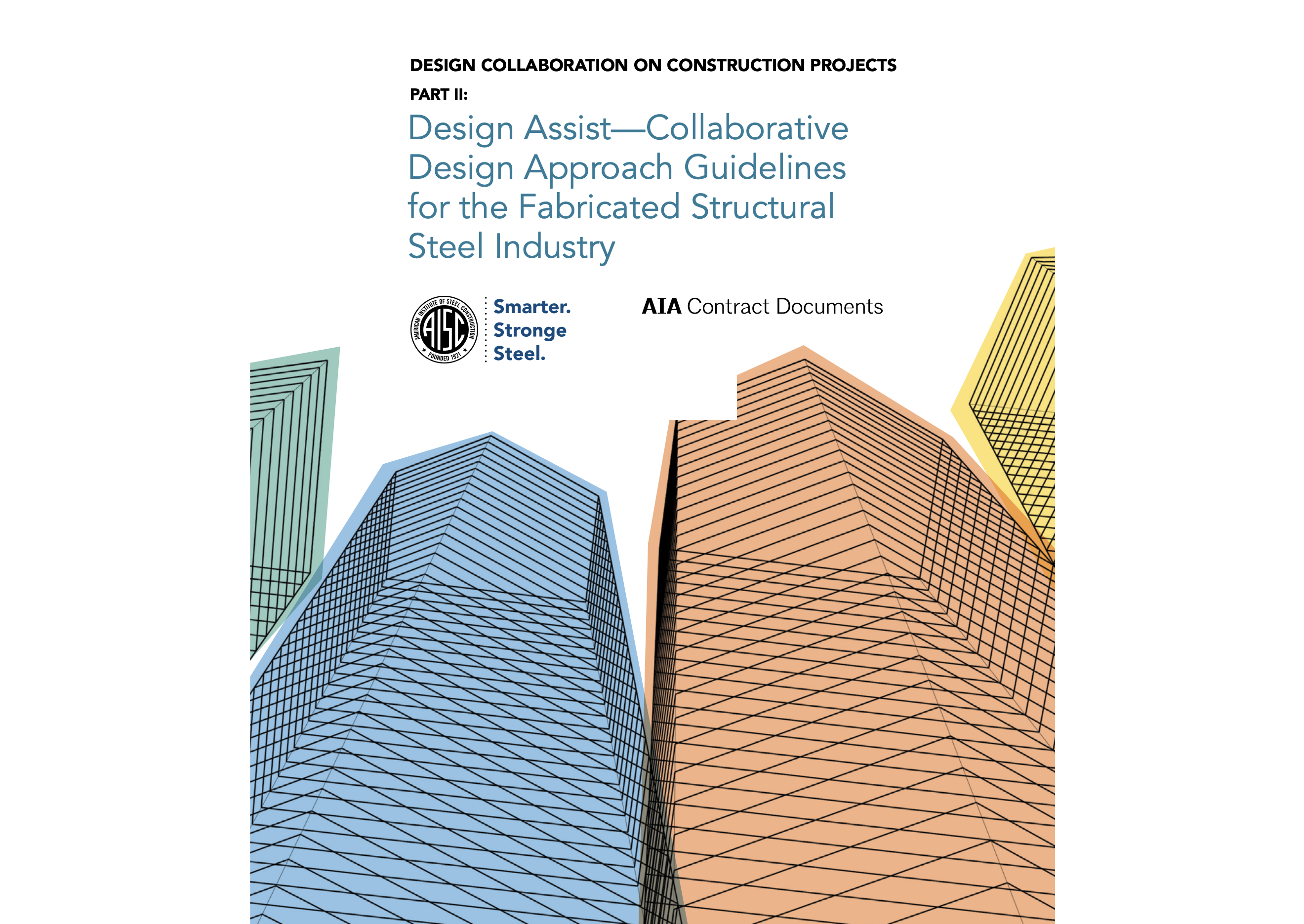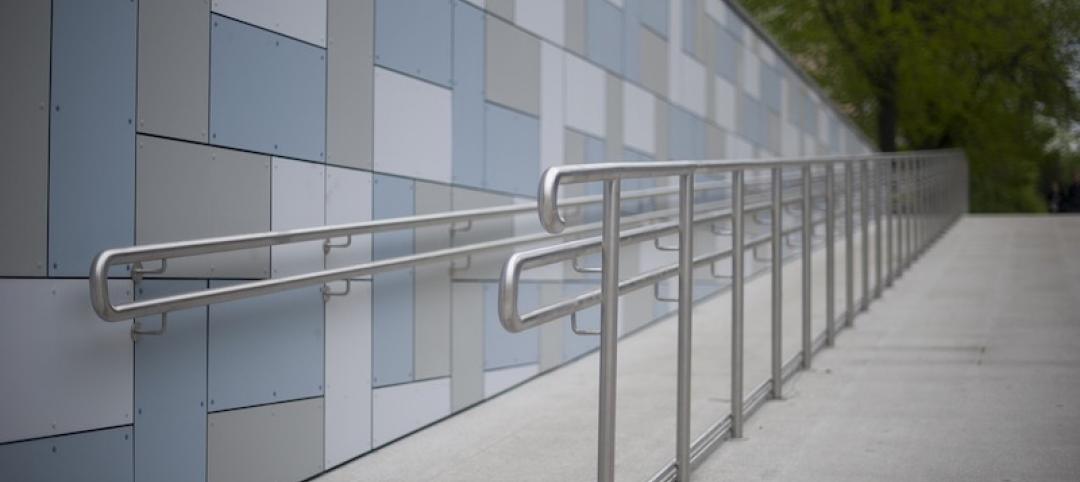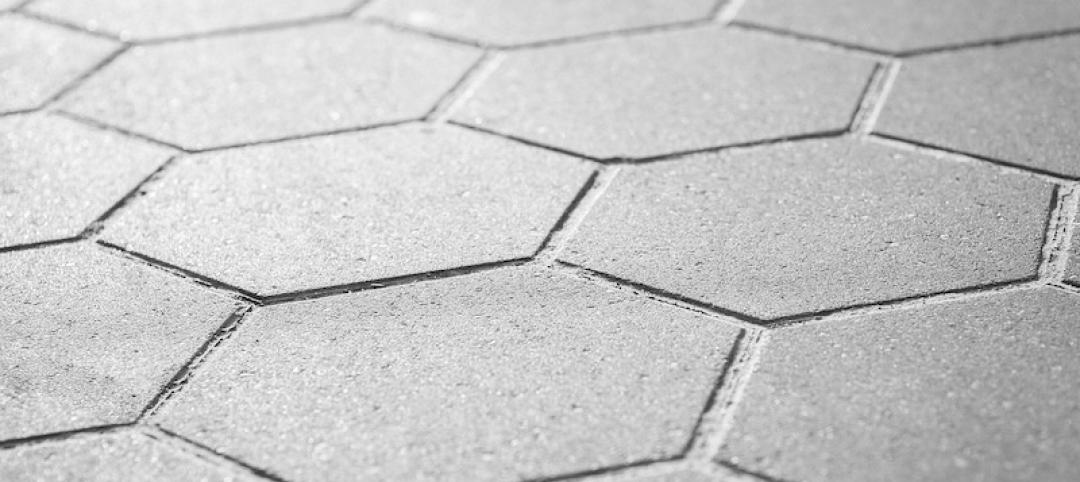The American Institute of Steel Construction and AIA Contract Documents have released the second part of a document intended to provide guidance for three common collaboration strategies.
The document, Design Assist: Collaborative Design Approach Guidelines for the Fabricated Structural Steel Industry, is a follow-up to part one, Delegated Design, Design Assist, and Informal Involvement: What does it all mean?
The strategies covered are informal involvement, design assist, and delegated design. Part II focuses on the implementation of design assist in the fabricated structural steel industry. The document describes the roles and responsibilities of various project participants and provides general guidelines about applying those strategies to fabricated structural steel projects.
“Great teams drive great projects—and great teams rely on clear communication,” said Babette Freund, vice president of special projects, Dave Steel Company, Inc., and chair of AISC’s Code of Standard Practice Committee. “This paper aims to help project teams use design assist strategies to meet a defined project schedule and budget while minimizing the costs and disruptions that might arise from team misalignments.”
How AISC defines design assist for the structural steel industry
According to the guidelines, design assist is, "A form of collaboration where a structural steel fabricator and/or erector (or a fabricator/erector team under one contract, depending on project circumstances) provides information under a contract with the owner or other party as designated by the owner, to assist a structural engineer of record (SER) and other designated members of the design assist team with the design of the structural steel for buildings or building-like structures."
Related Stories
Codes and Standards | Oct 24, 2019
ASHRAE design contest winners demonstrate building resilience
Model building, a city hall, could operate without utility service for two weeks.
Codes and Standards | Oct 22, 2019
Efficient material design, low-carbon concrete are critical to cutting GHG emissions in construction
Enhancing building utilization and reusing materials also aid carbon reduction.
Codes and Standards | Oct 21, 2019
Historic properties not exempt from Americans With Disabilities Act
Some exceptions do apply.
Codes and Standards | Oct 18, 2019
St. Louis could save $61 million per year in energy costs by improved building performance
GHG gases can be reduced by at least 11% with upgrades to public buildings and large private buildings.
Codes and Standards | Oct 17, 2019
Slow payments cost GCs and subs $64 billion annually
Study finds 51-day average payment turnaround.
Codes and Standards | Oct 16, 2019
Cool pavement can make people hotter
Reflective coatings channel sunlight raising temperatures where pedestrians walk.
Codes and Standards | Oct 15, 2019
Utah adopts 2018 International Energy Conservation Code
Provisions include increased building envelope performance and reduced air infiltration.
Codes and Standards | Oct 14, 2019
States continue to beef up energy efficiency codes
ACEEE 50-state scorecard finds latest IECC code gaining adherents.
Codes and Standards | Oct 9, 2019
DOE releases Better Buildings Healthcare Financing Primer
Outlines financial strategies to implement energy-efficiency projects in healthcare.
Codes and Standards | Oct 8, 2019
Zero Carbon Buildings for All aims for ambitious emission reduction targets
Organization makes commitment to net zero carbon for all buildings by 2050.

















